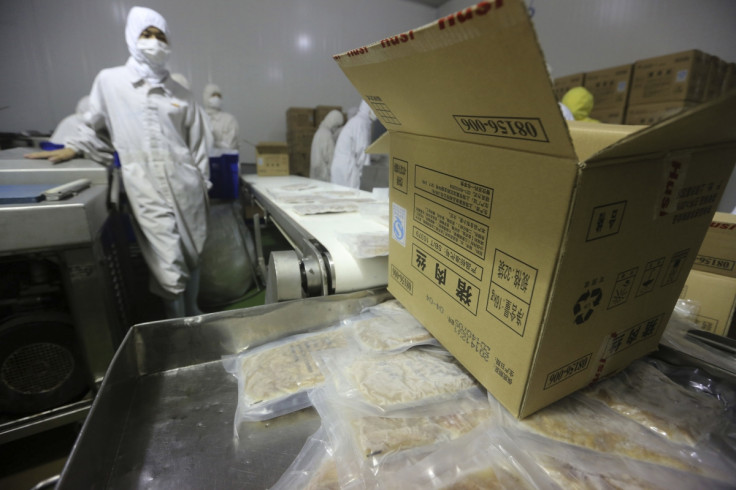China Food Scandal: 100 Tonnes of Stale Meat Found at Shanghai Husi and Five Employees Detained

Shanghai's Food and Drug Administration said it seized more than 5,000 boxes of expired meat from warehouses of Shanghai Husi Food after a raid, following allegations that the firm supplied stale meat to food companies including McDonald's and Yum's KFC.
China's CCTV reported on its website that around 100 tonnes of the expired produce has been sealed by the authority, which will be examined as part of an ongoing investigation.
Shanghai police had already detained five people employed at Shanghai Husi, including its quality manager, in connection with a probe into the company.
Meanwhile, an official said the activity was an organised effort by the supplier.
"We found that some of the illegal conduct was not that of certain individuals but was an arrangement organized by the company," Gu Zhenghua, deputy director of the Food and Drug Administration's Shanghai bureau, told the official Xinhua News Agency.
Nine companies including KFC, McDonald's, Burger King and Papa John's have used products ranging from beef, chicken and pork, from the Shanghai Husi. Following the outbreak of the scandal, the companies apologised to Chinese customers and said they are taking the concerned products off shelves.
On 21 July, operations at the Shanghai Husi were suspended and all of its meat products were ordered to be taken off the shelves. Shanghai Husi Food is the Chinese branch of privately held US-based food supplier OSI Group LLC.
Chinese local media earlier reported that Shanghai Husi Food sold chicken and beef past their expiry date to international food chains including McDonald's, KFC and Pizza Hut. KFC and Pizza Hut are owned by US-based Yum Brands.
Undercover reporters found Husi Food workers reprocessing and repackaging meat products whose due date had already expired.
Food safety has been a serious issue in China ever since the 2008 milk scandal when infants fell ill or died after consuming tainted milk powder.
The China daily reported that the government should not be lenient to such food crimes and it should severely punish the guilty.
"Should they be found guilty, those at Husi Food should not get away with their harmful acts simply because it is a foreign-funded firm. Otherwise it will only encourage others to take it for granted that the cost of cutting corners is much lower in China," the newspaper writes.
"Lawmakers reviewing the amendment of the Food Safety Law should understand the message from this scandal: that China has already paid a heavy price for too lenient penalties on food safety crimes in the past decades."
© Copyright IBTimes 2025. All rights reserved.






















